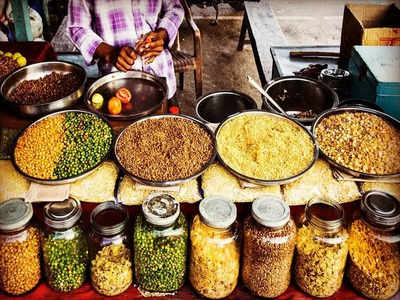In early December, the central government allowed duty-free imports of yellow peas until March 2024, later to be extended till April and then June. It was part of New Delhi’s intervention to cool the prices of the overall pulse basket. Reportedly, the duty on yellow peas was first implemented in November 2017 at 50 per cent. India largely imports yellow peas from Canada and Russia.
NEW DELHI: India has extended the timeline for duty-free
imports
of
yellow peas
by four more months until October 2024, according to an official notification.
In early December, the central government allowed
duty-free
imports of yellow peas until March 2024, later to be extended till April and then June. It was part of New Delhi’s intervention to cool the prices of the overall pulse basket.
Reportedly, the duty on yellow peas was first implemented in November 2017 at 50 per cent.
India largely imports yellow peas from Canada and Russia.
India is a large consumer and grower of
pulses
and it meets a portion of its consumption needs through imports.
India primarily consumes chana, Masur, urad, Kabuli chana, and tur pulses.
As part of the centre’s intervention, it had in September extended stock limits on tur and urad dal by two months until December 31, besides revising the stock holding limits for certain stakeholders.
The Ministry of Consumer Affairs, Food and Public Distribution had maintained that the revision in stock limits and extension of the time period were to prevent hoarding, elicit the continuous release of tur and urad in sufficient quantities to the market and make the pulses available at affordable prices.
Despite several measures, including various incentives to farmers, India is still dependent on imports of pulses for its domestic requirements. Pulses imports have almost doubled in 2023-24 to USD 3.74 billion.
However, the official figure is yet to be disclosed, and estimates suggest shipments have crossed 45 lakh tonnes in the just-concluded financial year 2023-24 as against 24.5 lakh tonnes a year ago.
Government sources told that to meet domestic demand and keep prices in check, the government is negotiating with new markets like Brazil and Argentia for a long-term contract for pulses imports.


